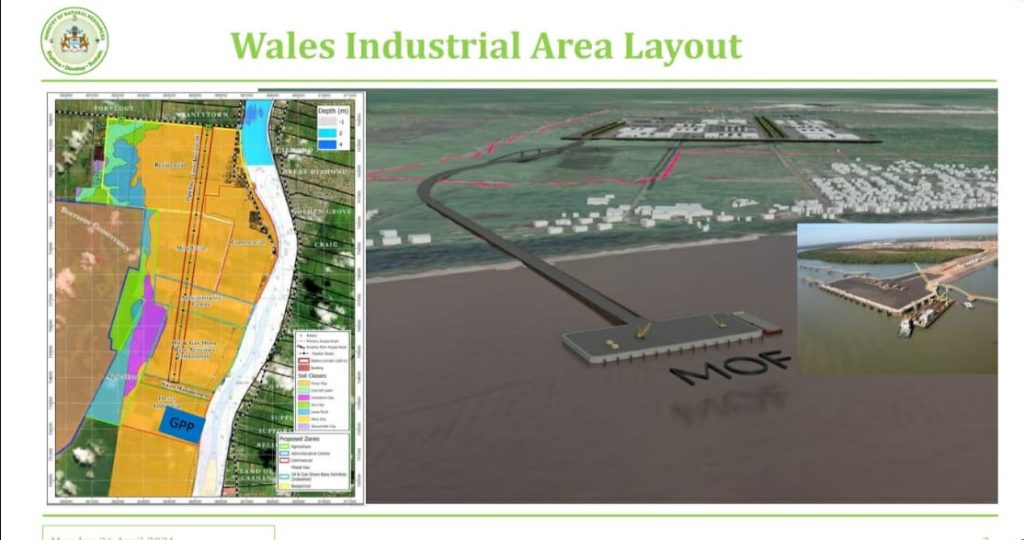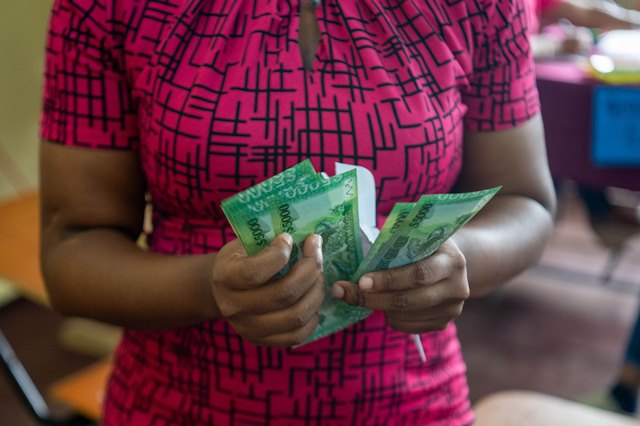Guyana’s ambition to bring its natural gas to shore and transform it into energy is a massive project that the government says it has been able to affordably pursue with its partner, ExxonMobil, guaranteeing significantly cheaper electricity and cooking gas in the near future.
But President Dr. Irfaan Ali fears that there are some Guyanese who have not yet realised the transformative potential of the project.
“This is a project that cannot be evaluated or written about in the narrow sense of a power plant…it is national and transformative in nature and one that cuts across various sectors,” the President said while meeting with government, private sector and civil society stakeholders at State House on Thursday.
The meeting was to allow the government to outline the process through which the project will move forward to bring benefits and advance prosperity for the people of the country.
And Dr. Ali did just that.

It will see 12 inches of pipeline run over 200 kilometers, transporting up to 120 million cubic feet of gas per day although it will start off with 50 million initially.
That has the potential to generate some 3,500 barrels of cooking gas per day, a prospect that Dr. Ali said will see the current average price of $4, 500 for 20lbs of gas being significantly reduced.
“We are not going to tell you anything about free cooking gas. That will be unsustainable. It is a fairy tale and it will take us nowhere,” the President added.
In terms of transparency, nine firms have already been pre-qualified and will participate in an open and transparent bidding process that should see the contract being awarded by the end of the year.
It will allow for the construction of the pipeline, powerplant, and the natural gas liquids (NGL) plant together.
Once completed, the electricity generation cost is set at US¢4 to US¢5 per kilowatt-hour; this includes paying back for the pipeline, the NGL facility, powerplant, and the operating cost.

“We have fulfilled the test of transparency, accountability, and being environmentally friendly… now we have to fulfill the test on the development side,” Dr. Ali told those gathered.
Dr. Ali reminded of promises the governing People’s Progressive Party Civic made in its election manifesto which includes providing affordable, stable, and reliable energy; fostering an energy mix that includes hydro, solar, wind and natural gas; increase production of 400 megawatts of newly installed capacity, all of which he said the government has either delivered or is well on its way to delivering, including reduced cost of energy to citizens.
The natural gas plant is already adding 250 megawatts and the Amaila Falls Hydro Power Plant is set to add 160 megawatts.
Another 45 megawatts will come from off-grid solar power and more from household solar units and small hydro plants that the government has embarked on.
“We are staying true to the commitment of delivering electrify at half the price consumers are paying now,” Dr. Ali said.
Dr. Ali demonstrated that the current 220, 000 households in Guyana are accounting for $40 billion in electricity revenue and with that set to be slashed by half, some $20 billion in savings is to be derived.
Additionally, every month the Guyana Power and Light and the government will save US$1 million in foreign currency that is used to pay for fuel.

“This project is linked to poverty reduction, food security.
“The benefits of this project are not only about electricity. It is a transformational project in a transformational construct,” Dr. Ali added.
Dr. Ali said that through this project there is a prosperous road ahead and warned that the promised prosperity can only be derailed by the actions of the country and its people.
Energy security fits into the government’s national transformation vision which includes six other pillars – infrastructure transformation, technology, services and economic transformation, food security, human transformation, and mental transformation.









nice info bro thanks